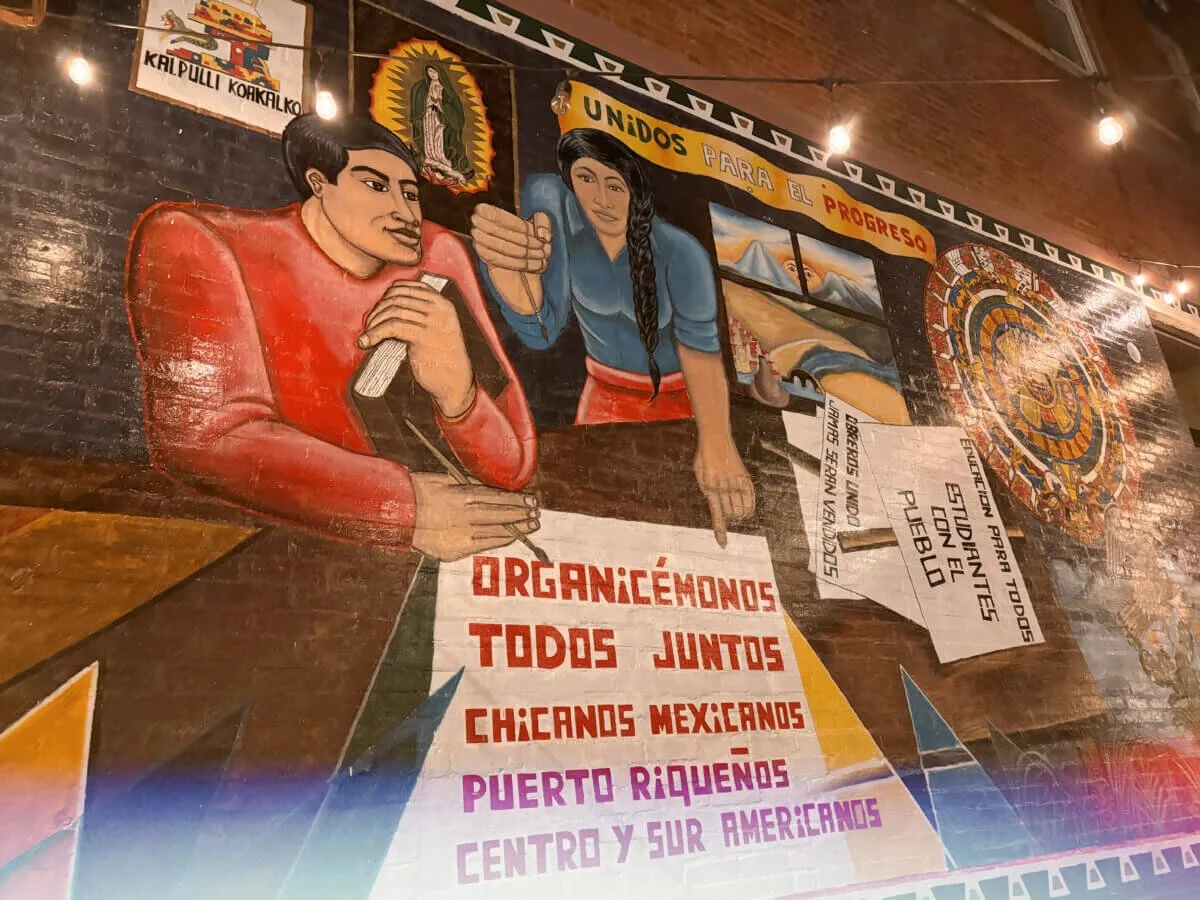
Our team values sharing research with a wide audience.
Below are a combination of journal articles and writing for the general public.
Select Journal Articles
-
![]()
Development and Initial Validation of the Transformative Justice Scale: Assessing Teachers’ Capacity for Transformative Practices in Education
AERA OPEN
This paper details the development of a scale assessing teachers’ perceived capacity to enact transformative justice pedagogy, the Transformative Justice Scale (TJS). This measure is grounded in transformative justice (TJ) scholarship and is comprised of two subscales. The TJS factor structure was identified via exploratory and confirmatory factor analyses, with distinct samples of racially diverse middle and high school teachers. The TJS is time and resource efficient in that it uses teacher self-reports. The TJS contributes to the literature by providing an assessment of transformative or social justice–oriented pedagogy that is not well covered in existing measures. The TJS also would support teacher professional development and
coaching because it could be used as a pre- to post-evaluative tool, to foster continuously reflective practice, or to provide structured feedback. Future work should explore these potential applications as well as further develop teachers’ capacity to enact transformative and equity-oriented approaches to practice. -
![]()
Anti-racist methodological approaches to ethnic-racial identity and critical consciousness scholarship
JOURNAL OF SCHOOL PSYCHOLOGY
Research on ethnic-racial identity (ERI) and critical consciousness (CC) provide relevant and timely insights into youth development, particularly among youth of color. Simultaneously, developmental and educational research are re-examining their methodologies in terms of their
use (or lack) of anti-racist practices and policies. In the current examination, we consider past and modern methodologies in ERI and CC work, ways in which they are and may be theoretically founded, and how we may best advance anti-racist research methodology in these areas. To do so,
we discuss the processes of ERI and CC development within a developmentally relevant time-
frame and context: adolescence and school spaces. -
![A young woman with long brown hair and gold jewelry kissing an elderly woman with white hair, glasses, and a scarf, who is seated outdoors against greenery.]()
To Help or Hinder: The Role of Nonparental Adults in the Sociopolitical Development of Immigrant-Origin Latinx Emerging Adults
JOURNAL OF ADOLESCENT RESEARCH
Mentoring relationships are critical to adolescent development and can foster social change. While evidence highlights the positive impact of mentors, there is limited understanding of how this process unfolds for Latinx immigrant-origin emerging adults, and the potential for other adults to hinder their sociopolitical development. Through Constructivist Grounded Theory, we explored: How do nonparental adults (1) positively shape and (2) hinder the sociopolitical development of immigrant-origin Latinx emerging adults? Semi-structured interviews were conducted with participants (N = 23; Mage = 20) from U.S. regions with large but varying Latinx populations in collaboration with university and community partners. The results are in line with our assertion that participants’ sociopolitical development was positively shaped by adults who gave emotional support, provided opportunities for critical social analysis, modeled sociopolitical engagement, arranged opportunities for action, and equipped young people through instrumental support. The findings also support our assertion on how nonparental adults hindered sociopolitical development through discouraging dialogue, restricting action, and manipulation. Findings have implications for future youth development interventions. We provide recommendations for future research and practice.
-
![Three young girls sitting outdoors on grass by a body of water, with sunlight reflecting on the water, appearing to be enjoying a peaceful moment together.]()
Mentoring Latinx Children and Adolescents: A Systematic Review
ADOLESCENT RESEARCH REVIEW
Latinx children and adolescents are uniquely positioned within the U.S. context, historically experiencing both systemic and institutional failings. Mentoring relationships plays a protective role in healthy youth development and may alleviate some of the deficit narrative often placed upon Latinx youth. To better understand these potential benefits, this systematic review examined the current literature on the role of mentoring (i.e., both natural and formal mentoring) in a variety of developmental outcomes of Latinx children and adolescents in the U.S., ranging from kindergarten-age to under 18 years old. The 24 included studies had mixed results, yet findings pointed to a range of potential benefits for this population, such as improved academic and psychosocial outcomes, language and ethnic identity. Various components of mentoring—including mentor characteristics, relationship characteristics, and family involvement in mentoring programs—were also found to be related to Latinx youth’s improved developmental outcomes. However, methodological concerns in study designs limit what can be gleaned from these conclusions. Recommendations for future directions for research and intervention are provided.
-
![Person wearing a denim jacket and holding a stack of notebooks, with a backpack and earbuds, walking on a sidewalk.]()
Everyday Acts of Resistance: Mexican, Undocumented Immigrant Children and Adolescents Navigating Oppression With Mentor Support
JOURNAL OF RESEARCH ON ADOLESCENCE
Study aims were to examine oppression in education among Mexican immigrant youth with undocumented status and how mentors and other adults helped them resist oppression. Qualitative, narrative one-on-one interviews were conducted with 17 Mexican immigrant young adults with undocumented or DACA status in the U.S. Participants provided retrospective accounts from childhood through older adolescence. Analyses revealed critical junctures in which participants experienced oppression: (1) developmental milestones and school events, (2) college application process, (3) unforeseen life events, and (4) incidents of racial discrimination. Mentors and other adults helped participants to resist oppression through advocacy, social capital efforts, role modeling, and emotional, instrumental, and financial support. This study fills gaps in the literature on mentoring and immigrant youth who are undocumented.
-
![A young woman with glasses and long black hair with green tips, wearing a red and black plaid shirt, standing in front of a whiteboard.]()
Act, Talk, Reflect, Then Act: The Role of Natural Mentors in The Critical Consciousness of Ethnically/Racially Diverse College Students
AMERICAN JOURNAL OF COMMUNITY PSYCHOLOGY
The current mixed-method study examined the role of natural mentors in the cyclical process of college students’ sociopolitical development, particularly their critical consciousness. College students (N = 145) completed surveys at two time points over a one-year period. Path analyses indicated that critical action and perceived inequalities were significantly associated with more social justice conversations with mentors and that having more social justice conversations with mentors was significantly associated with more critical action and perceived inequality. Further, mentoring conversations and sociopolitical efficacy helped to explain the positive role of perceived inequality and action on later attitudes around perceived inequalities and critical action. Qualitative one-on-one interviews of a subset of participants (n = 30) expanded findings from the quantitative data and revealed detailed information about how mentors supported youth critical consciousness. Specifically, mentors engaged in 1) dialogue and reflection, 2) information and resource sharing, 3) nonjudgmental, comfortable conversations, and 4) role modeling. Findings inform the iterative nature of critical consciousness and on how older adolescents leverage support from natural mentors in this process.
Public Scholarship
-
![Wall with murals of Puerto Rican and American flags painted on doors.]()
In Puerto Rico, Language Has Always Been Political
OP-ED
The Latino Newsletter
-
![Young girl standing on a concrete curb with her arms extended in an outdoor park setting, surrounded by trees and greenery.]()
Building Young Civic Leaders: How CLTI Empowers Children to Change Their Communities
BLOG POST
NYU Center for Policy, Research, and Evaluation
-
![Mural depicting two people, one holding a book and another pointing at a sign, with colorful text in Spanish and symbols representing Mexican and American culture.]()
Mentoring for Change: Supporting Latinx Youth in Civic and Political Engagement
BLOG POST
MENTOR: The National Mentoring Partnership
-
![Gavel striking a sound block, symbolizing judgment or legal proceedings.]()
Family Well-being through the Asylum-Seeking Process
POLICY RESOLUTION
Global Alliance for Behavioral Health & Social Justice










